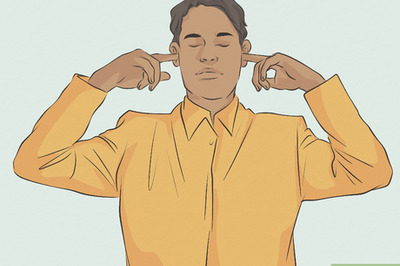
views
Sunil Awasthi, a good friend of mine, often complained that his wife constantly criticised him. She used to call him sloppy, unclean, lazy, overweight and absentminded! He put up with all this for some time, but then he began losing it.
"Why does she keep on criticising me? Am I really that bad?" he asked me frequently. His woes did not end at home. At work, too, his boss and colleagues felt he was slow, a plodder, and a stickler for rules, lacking free spirit, nervous, you know, the works.
No one likes to be criticised, obviously. And yet, many of us are victims of this, from family, friends and colleagues. Criticism can bite, making one feel unworthy and useless. When it becomes longstanding, it tends to reduce one's self worth and self-esteem, leading to depression.
You would want to scream at the person who is criticising you. Or just disappear. But here's one thing as old as man himself. And it's here to stay. So, how do you go through life with all that criticism coming your way?
Take the bull by the horns
Before deciding what to do with criticism and people who criticise us, it is essential to know yourself.
Most of us really don't know our own selves really well – our assets, liabilities, feelings and emotions, habits, preferences and behaviour.
Completely knowing oneself is not an easy task, either, for if we were to really know ourselves well, then it becomes easy to manage criticism. Knowing oneself truly becomes the cornerstone and the key to managing criticism.
Only when you know yourself fully can you decide whether the criticism being directed at you is true or false. And on that basis, you can formulate your responses.
PAGE_BREAK
Truth hurts
To get to know yourself better, take a piece of paper and write down all the things that you think are good and bad about you. Be brutally honest, and even if you come out with more negatives than positive listings, don’t be afraid.
List down all your assets and liabilities; make you own personal 'balance sheet'. If you can't do it all by yourself, you can ask someone very close to you, like a sibling, spouse or a close friend, whom you can completely trust to give you an unbiased opinion.
Next, study and understand it. Once you have clarity about the list, handling criticism becomes easy. So, the next time someone were to criticise you, calling you tardy, tightfisted, vain, short-tempered or depressive, you only have to go back to your list, which should be memorised so well that it is always there in your mind, and compare what the person is saying about you.
If what the person is saying about you is true, according to the list that you have made, you should keep quiet, and not react violently with arguments or by defending yourself. That person is only telling the truth.
However, if what this person says does not match up to the list you have, and if you know that what he is saying is untrue, ignore it completely. But, either way, you realise that if you were to come under any form of criticism, true or false, there is really no room for argument.
Either you accept gracefully, and think about whether you want to change the shortcoming you have and how to go about it. Or else, knowing that what the other person is saying is not true, you can laugh it off, ignore it and go about your work.
What hurts the most
When would you fly off the handle? Simple, when you don’t want to acknowledge an honest criticism. For example, if someone were to call you sly or clumsy, or lazy and short tempered, and you are really all of that but don’t want to acknowledge it, then you are likely to get angry. You feel like someone who has been caught telling a lie, or in the act of stealing. Invariably, such relationships go through tough times.
Keep the faith
There are always clear cut distinctions in life, between what is supposedly good and bad – being soft spoken, timid, calm, always helping others, sensitive, altruistic – these are universally good qualities.
On the other hand, being short-tempered, jealous, greedy, insensitive, possessive, egoistic – are all bad qualities. We all invariably have a mixture of good and bad qualities. But we rarely have the courage to say so. All our efforts in life are directed towards covering up our "bad" qualities, and projecting the "good" qualities. Hence, to be able to honestly accept oneself for what you are needs tremendous courage.
Dr P V Vaidyanathan is a consulting paediatrician and child specialist from Mumbai, and Indiwo.com's resident relationship columnist.
Read more on lifestyle here




















Comments
0 comment